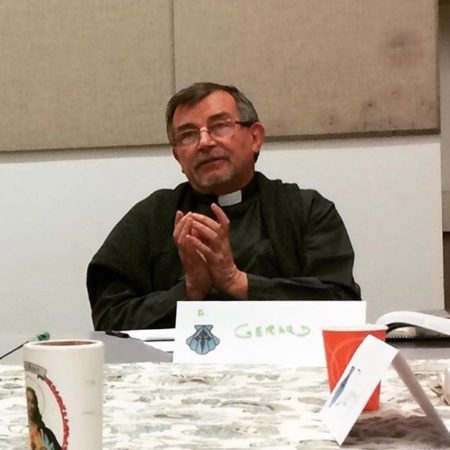Truth shall spring out of the earth, and justice shall look down from heaven.
— Psalm 85:12
Peter’s courage led him not only to be the only disciple who spoke to the ghost who could be Jesus, but also to dare to walk on water as he did during a violent storm. But when he realized what he was doing, he lost faith. His faith resembled that of someone, in the metaphor we heard a few weeks ago, whose seed of faith was planted on rocky ground. It immediately sprang to life but then withered for lack of roots. On rocky ground, on rocky waters, Peter’s faith at this point is not well-anchored. We will see these rocks again when Jesus is arrested and Peter denies him three times. But we know that in the end Peter is the rock. The extravagance of the sower is finally rewarded. Our faith may grow slowly and haltingly, but we are never abandoned.
It’s no accident that when an angel appears in scripture, the first thing the angel generally says is, “Do not be afraid.” Angels appear much as Jesus did in this passage—like ghosts, like otherworldly presences. Men and women visited by angels or by the presence of God usually initially react with fear. To cope with fear, they call upon their faith. We too struggle with fear: fears about our family, our health, our finances, our future. Faith can help steady us as we struggle with our fears, can enable us to walk through raging waters. Saint Paul is so selfless that he would sacrifice his own salvation for the sake of the salvation of Israel, “my kindred” (Romans 9:3). We can imagine going to great lengths for our own kin, meaning someone in our own family, but for Paul, kinship includes an entire people. His affection for those close to him extends to entire peoples, indeed all humanity.
Fr. Gerard Lecomte, CJM
Pastoral Patters
Summer 2020
Question of the Week
How can I overcome the fears and doubts I have in my life? How can I support others striving to overcome their own fears and doubts?

